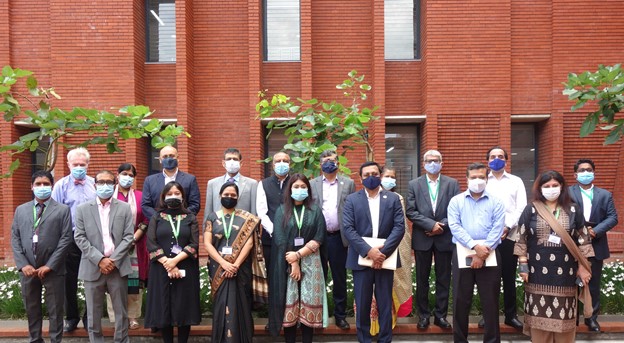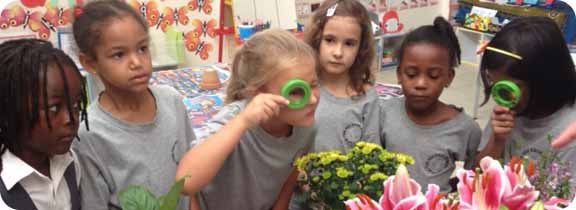
Student Leadership
The Academies’ programmes aim to develop students who are ethical, public-minded and who possess a pluralistic outlook. Both curricular and co-curricular activities work to educate effective home-grown leaders who are actively engaged in their local communities and are aware of the implications of their actions. Through their participation in co-curricular clubs, students are encouraged to take on leadership positions in a variety of different forms (e.g. house leaders, student council, team captains, dorm duties).
Not only do these opportunities provide an environment to explore and enhance skills such as cooperation and problem solving, they also enable students to set personal goals and challenge themselves.
Student leadership activities vary from community service opportunities to sports and expressive arts. Students have opportunities to participate in the Student Representative Council and other similar activities.
Leadership activities instil in participants a sense of community ownership, creativity and a collaborative spirit, and prepares them for a lifetime of active engagement and leadership.
"The conviction that home-grown intellectual leadership of exceptional calibre is the best driver of a society’s destiny, underpins the Ismaili Imamat’s endeavour to create catalytic centres of educational excellence."
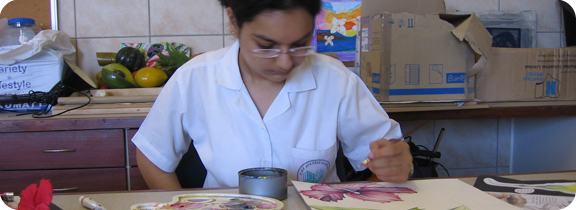
International Baccalaureate
The International Baccalaureate (IB) is a non-profit educational foundation, motivated by its mission to create a better world through education. IB programmes for students aged 3-19 help develop their intellectual, personal, emotional and social skills to live, learn and work in a rapidly globalising world.
Following in the footsteps of its sister schools in Mombasa, Hyderabad and Maputo, the Aga Khan Academy Dhaka plans to become an IB World School, subject to the necessary authorisations.
IB World Schools share a common philosophy – a commitment to improve the teaching and learning of a diverse and inclusive community of students by delivering challenging, high-quality programmes of international education that share a powerful vision.
Aims of the IB programme
Founded in 1968, the International Baccalaureate currently works with schools in 144 countries to develop and offer their programmes to over one million students.
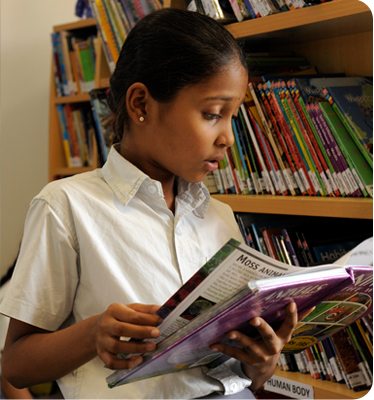 The IB mission statement declares:
The IB mission statement declares:
"The International Baccalaureate aims to develop inquiring, knowledgeable and caring young people who help to create a better and more peaceful world through intercultural understanding and respect. To this end the organisation works with schools, governments and international organisations to develop challenging programmes of international education and rigorous assessment. These programmes encourage students across the world to become active, compassionate and lifelong learners who understand that other people, with their differences, can also be right."
For further information about the International Baccalaureate and its programmes, please visit the IB website.
Pinto Belo João: A determined teacher and a collaborative planner
“Being a teacher is not easy, because we have to teach and learn every day. I chose a career in teaching because I like to share what I know with others, especially young people, to help them to overcome the challenges in life. Being a teacher is like taking care of something special, so I decided to take care of that special thing, walking together in order to discover the world around us.”
Pinto Belo João is a grade 2 teacher at the Aga Khan Academy in Maputo. Born in Maputo, Mozambique, Pinto attended a teacher training course in Matola in 2007 where he became a primary teacher and then attended Pedagogical University in 2011 to study education. He came to the Academy as part of the Teacher Preparation Programme (TPP), which was established by the Aga Khan Academies to train recent teacher graduates to become International Baccalaureate (IB) teachers.
“Honestly I didn’t know many things about the Academy before I joined, but I always was eager to learn and grow professionally,” says Pinto. Through the Aga Khan Academy, Pinto says he has grown professionally in terms of learning new approaches to teaching and learning, trying new things and giving himself a chance to learn more. “Through professional development, the Academy helped me become a more effective teacher and a collaborative planner,” he says proudly.For Pinto, the most rewarding aspect of the Aga Khan Academy is teaching while surrounded by experts. This environment has given him the opportunity to try new things and granted him time to reflect on teaching strategies. This has been both valuable and powerful for Pinto as it allowed him to share experiences related to classes and receive guidance and support from others. What Pinto really likes about the Academy is the integration of the Aga Khan Curricular Strands. “In my opinion these Strands make us unique and different from others,” he says.
Reflecting on enlightening experiences at the Academy, Pinto narrates a particular day when he was teaching mathematics through games. He says that while he was giving instructions on how to play the game he was surprised to see the students already playing the game before he could even finish explaining. “I learned something that day: we should never underestimate our students. Sometimes we think that we have to teach something, but the students already know it. We need to be careful in our approaches,” Pinto remarks.
In this way, Pinto has learnt profoundly from his students and feels that the teacher-student relationship, reinforced by trust, is of the utmost importance. “We need to establish trust so that the process runs toward success both inside and outside the classroom,” he says.Relationships in the classroom must also involve parents – Pinto knows the importance and necessity of parental involvement in the education of their children. He regularly updates the parents about what they do in class and about their school trips – he also ensures that he shows parents the newsletter with stories of learning from the classroom. Some of the homework Pinto assigns includes parent personal experiences that they can share with their children.
At the Academy, Pinto says they try as much as they can to involve all students in activities and give each of them a role in groups to make them appreciate each other’s abilities. “By promoting activities like social community, [this] makes the students reflect on their own actions,” he remarks. Pinto explains that students come from different backgrounds and nationalities and that this is what makes the residential environment multicultural and promotes pluralism. When the students are exposed to this environment, Pinto says, “They learn more from each other and respect diversity. It is a great experience for them.” Ensuring a climate of pluralism on campus is not an easy task, Pinto says. “But through student’s responsibilities, we can ensure that they are working together.”
Spotlight: Mercy Muthui
This is Mercy, a teacher at the Aga Khan Academy Mombasa who joined through the Teacher Preparation Programme. Mercy fosters profound and meaningful relationships with everyone around her and consistently encourages her students to be the best versions of themselves.
Press Release: Kenyan Educators Graduate from PD Programmes
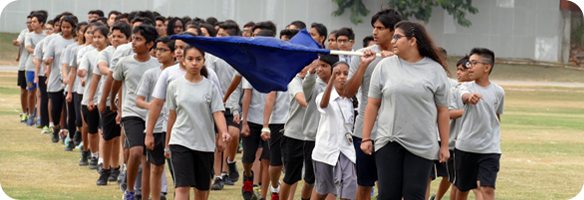
Diploma Programme
The Aga Khan Academy Dhaka is a Candidate School* for the Diploma Programme. This Academy is pursuing authorisation as an IB World School. These are schools that share a common philosophy—a commitment to high-quality, challenging, international education that the AKA Dhaka believes is important for our students. *Only schools authorised by the IB Organization can offer any of its four academic programmes: the Primary Years Programme (PYP), the Middle Years Programme (MYP), the Diploma Programme, or the Career-related Programme (CP). Candidate status gives no guarantee that authorisation will be granted. For further information about the IB and its programmes, visit www.ibo.orgThe Diploma Programme is a demanding, pre-university-level course of studies. It is internationally recognised by over 2,000 universities worldwide.
The DP has a reputation for rigorous assessment of student achievement. Each student’s performance and levels of knowledge are examined internally by teachers according to set criteria. They are also assessed externally by independent examiners according to global standards applied to all IB schools.
Our students study all the subjects covered in a traditional, broad curriculum, including languages, social sciences, experimental sciences, mathematics and the arts. The DP also takes the curriculum a step further through three unique programmes:
- theory of knowledge
- creativity, activity, service
- extended essay.
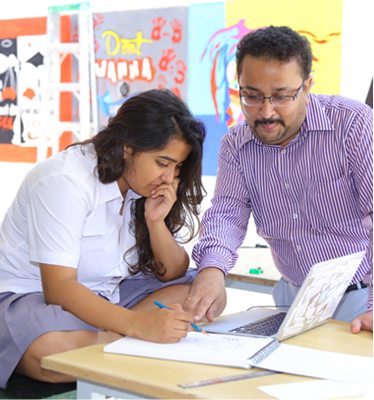 Theory of knowledge
Theory of knowledge
Theory of knowledge (TOK) is an interdisciplinary requirement unique to the International Baccalaureate Diploma Programme. It encourages students to reflect on the knowledge they gain both inside and outside the classroom.
One hundred hours of classroom time are dedicated to the TOK programme. We challenge our students to question the nature of knowledge across disciplines, to recognise biases and to analyse evidence using rational thought and argument. By making our students consider and appreciate different perspectives, TOK contributes towards a pluralistic outlook.
Creativity, activity, service
Creativity, activity, service (CAS) is an important component of the IB curriculum and is required for every DP student at the Academy. Our students participate actively in a variety of creative endeavours, physical activities and community service projects. They develop self-confidence, teamwork and leadership skills, and a sense of civil responsibility.
Students take part in sustainable projects that have real and lasting effects on the greater Hyderabad community. They develop strength of character and an understanding of their ability to bring about change.
The CAS programme is valued for its power to transform the lives not only of students but also the people they work with. It serves as a platform for interpersonal exchange, personal growth and greater understanding of the issues we face as a global community.
Extended essay
The extended essay requires students to pick a subject of their choice and research and develop it into a 4,000-word essay. Students may choose to investigate a subject from one of their higher-level courses more deeply. Or they can broaden their academic experience by researching a subject in a field they are not currently studying.
Through the extended essay, we introduce students to the kind of independent research and writing skills expected at the university level.
For further information on the IB Diploma Programme at the Academy, please see the admission requirements or contact us.
*Only schools authorised by the IB Organization can offer any of its four academic programmes: the Primary Years Programme (PYP), the Middle Years Programme (MYP), the Diploma Programme, or the Career-related Programme (CP). Candidate status gives no guarantee that authorisation will be granted. For further information about the IB and its programmes, visit http://www.ibo.org.
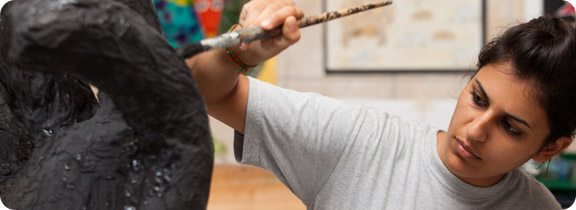
Educational Philosophy
Education is a creative, joyful process that engenders hope and curiosity. Through a diverse and rigorous curriculum, the Aga Khan Academies strive for the development of the whole person. Academies students will be able to contribute to and positively influence their communities. Through academic, athletic and artistic pursuits, they become lifelong learners and leaders.
Education is most relevant and inspiring when it connects young people to the world around them. By encouraging students to think flexibly and to connect their learning to real issues, the Academies build curiosity, compassion and a desire to make a difference.
The programmes of the International Baccalaureate curriculum have therefore been adapted to the specific environment of each Academy, with students developing a deep grounding in their local context alongside learning about relevant international issues and ideas.
An Academies education engenders a pluralistic and ethical approach to life and leadership.
Diverse educational experiences mean that students develop the willingness to embrace difference, and to learn from it. From the very youngest years, everyone works together to develop a sense of civic responsibility and service.
All students are encouraged to use their understanding and skills to take meaningful and sustainable action that makes a real difference to the lives of others.
"...above all, it is my hope that these schools will stimulate creativity, intellectual curiosity and honest inquiry so that their students can adapt and thrive in a world of rapid change; can make informed judgements on life’s daily challenges, and place those judgements in an ethical framework."
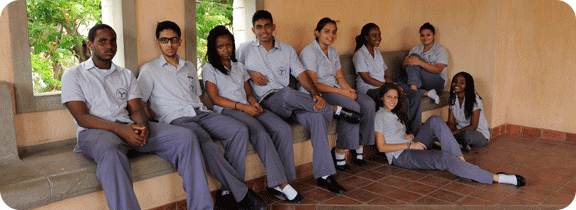
Quick Facts about the Academy
The Aga Khan Academy Mombasa (established 2003)
Location: Kizingo area of Mombasa Island
Campus size: 18 acres of land; campus design inspired by local Swahili architecture
Curriculum
The Aga Khan Academy Mombasa is an International Baccalaureate (IB) World School
IB programmes:
- Primary Years Programme: years 1–5
- Middle Years Programme: years 6–10
- Diploma Programme: years 11–12
Aga Khan Curricular Strands, implemented across the curriculum:
Ethics, Pluralism, Cultures (with an emphasis on Muslim civilisations), Governance and Civil Society, and Economics for Development
Staff and students
Faculty numbers: 7 senior management, 70 Senior School faculty, 27 Junior School faculty, 104 administrative staff
Number of students currently enrolled: 687 day and residential students in total: 181 day students in the Junior School; 506 day and residential students in the Senior School, with 270 in residence
Numbers of students and teachers at full capacity: 750 students and 90 teachers, with over 30% of students receiving some form of financial aid
First IB Diploma Programme graduating class: 2007
Residential students
Number of residential students: 270 currently, with full capacity of 300 students
Number of students per room: Between 1 and 4, with second year Diploma Programme students in single or double rooms
Residential facilities: Student lounge with large-screen television, study areas, laundry facilities, dining hall
Campus facilities
Sports facilities: 25-metre swimming pool, diving pool, full-sized sport field, Astroturf field, gym,
three regulation-sized basketball courts, cricket pitch, tennis courts, squash courts, badminton court, volleyball court, netball court and junior play area
Arts facilities: Rooms for fine arts, music, dance; individual music practice booths; music recording area; amphitheatre performance space
Academic areas: Junior School classrooms, Senior School classrooms, science and computer laboratories, multiple-award-winning library and resource centre, arts facilities, music and dance studios
Residential buildings: Six residential blocks: three male and three female; 4–6 dorm parent apartments in each block. Each block has a central atrium, lounge area, ocean view, patio and laundry facilities
Technology: The Aga Khan Academy Mombasa has been named a Microsoft Showcase School, the only school in East Africa to receive this designation
Professional Development Centre
The Aga Khan Academy Mombasa is home to a Professional Development Centre for the advancement of teachers. The primary objective of this centre is to provide professional development that will benefit the wider school system in Kenya.
Programming began in June 2010 with a Professional Learning for Educators Series for teachers in local government, independent and not-for profit schools.
Through the Microsoft Showcase Schools programme, the Aga Khan Academy Mombasa shares ideas globally and supports other schools in Kenya to improve learning and student outcomes through technology.
The Aga Khan Academies network
18 Academies are planned in South and Central Asia, Africa and the Middle East.
3 Academies are currently operating: Mombasa, Kenya (opened 2003); Hyderabad, India (opened 2011); and Maputo, Mozambique (opened 2013).
When complete, the network will represent 2,000 teachers and 14,000 students (boys and girls), with 1,400 graduates annually.
Institutional partnerships include:
Agencies of the Aga Khan Development Network; universities including Harvard, Oxford, Toronto and University of California, Los Angeles; secondary schools including Phillips Academy, Andover, USA and Schule Schloss Salem, Germany.

